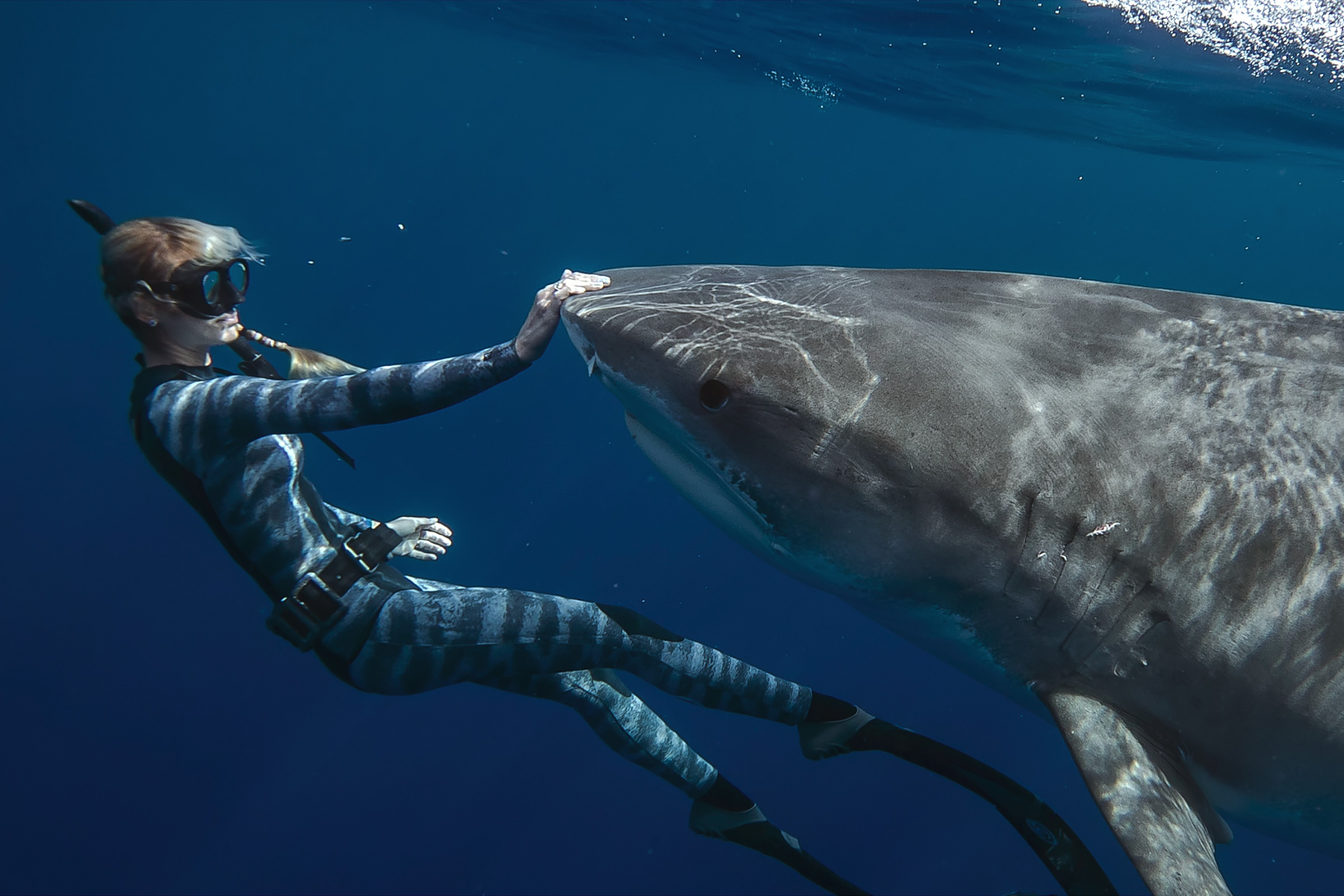I only found out about the new Netflix documentary Shark Whisperer because my social media notifications exploded. I had been tagged in posts by people calling me anti-shark and anti-environment. I was confused, until I watched the film.
There I was, portrayed as the antagonist.
I served as Chair of Hawaii’s House Committee on Ocean, Marine Resources and Hawaiian Affairs, the body featured in the documentary for holding hearings on shark protection legislation. What the film doesn’t show is that I was one the earliest and strongest champions of the bill that banned shark fishing. I called for a hearing when others hesitated. I moved the bill to a vote despite resistance from House leadership. I worked hard to secure the support needed to pass it.
[time-brightcove not-tgx=”true”]
But in the documentary, Native Hawaiians like myself—lawmakers, kūpuna (elders), and local researchers—are reduced to obstacles. We are either tokenized or vilified, while a single outsider (in this case, social media activist Ocean Ramsey) is framed as the story’s savior. This isn’t just a misrepresentation. It reflects a deeper pattern in the way mainstream documentaries often frame their stories: who is cast as the subject, and who is cast as the object. Whose knowledge is celebrated, and whose is pushed aside.
I grew up freediving off the coast of Maui, spearfishing for fish and heʻe (octopus), and encountering manō (sharks) regularly. These weren’t adrenaline-fueled stunts. They were sacred moments. In our tradition, the shark is not something to be humanized or monetized. It is our aumākua, a family guardian. We do not stalk them, name them, or treat them like pets. We show respect. We let the manō come to us.
Later as a young lawmaker representing my community, I began to see how depleted our waters had become. Fish stocks were declining, coral was dying, and ocean commercialization was pushing native species to the edge. I didn’t take on shark protection because it was politically easy. It wasn’t. Many commercial fishermen opposed it. Colleagues warned me not to push it. But I moved forward anyway because the ocean raised me. I owed it that much.
Shark Whisperer claims to honor marine life, but it often confuses reverence with control. It reduces wild, sacred beings to characters in a human-centered story, mistaking closeness for connection. But in our culture, true respect often means keeping a sacred distance. Not everything powerful needs to be tamed. Every creature holds its own essence and role in the web of life, whether or not it reflects us. To honor them is to let go of the need to dominate or display, and simply let them be.
That’s what makes the film’s focus on Ramsey so troubling. Not just because it elevates her as the lone protector of Hawaii’s sharks, but because it blurs the line between advocacy and appropriation. In a recent Instagram post, Ramsey referenced the honor of receiving ʻuhi, a sacred tattoo ceremony traditionally reserved for Native Hawaiians. She described it as a “symbol of her kuleana and heritage”, claiming a cultural lineage that simply isn’t hers.
Beyond this, her academic background is unclear. Her origin is often vague. What is clear is that she lacks the trust of the local community. Many advocates believe her involvement actually delayed the passage of the shark protection law. Her presence casted doubt on the credibility of the broader coalition. And some supporters hesitated to show up, concerned their advocacy would be associated with what many saw as her disrespect toward Native Hawaiians and local fishers.
And now, with an even larger platform, her example risks being imitated. And if others will mimic her tactics, our voices, the ones rooted in generations of lived experience and cultural knowledge, may be drowned out.
The truth is, Kānaka Maoli (Native Hawaiian) ocean protectors have been doing this work for generations. They’ve done it with fewer followers, without sponsorships or stunts, and without turning our aumākua into content or cash. Our true Kahu Manō (shark whisperers) may never get a documentary deal or millions of views, but they carry the knowledge that sustains life in our waters and our communities. They are who we turn to. They are who we trust.
Netflix had the opportunity to center their voices. Instead, it followed a formula weʻve seen many times before.
In The White Helmets, Western filmmakers crafted a humanitarian narrative in Syria that largely erased local organizing and failed to contextualize the complex geopolitical forces involved. In The Rescue, Thai cave divers were spotlighted over the Indigenous local volunteers who led much of the initial effort. And in The Ivory Game, African anti-poaching leaders were overshadowed by European conservationists with camera crews and sponsorships. These films may have had good intentions, but they reflect a pattern: the white outsider as savior, the local or Indigenous people as backdrop or obstacle.
This kind of framing doesn’t just distort the truth, it disempowers communities. It reinforces a system in which those closest to the harm are furthest from the platform, and those furthest from the culture are handed the microphone.
But it doesn’t have to be that way.
Good allyship begins with humility. It means showing up in solidarity, not for visibility. It means knowing when to speak, and when to step back and amplify those with lived experience and ancestral ties—especially when the work involves sacred beings, sacred practices, and sacred places.
We’re not asking to be centered in every story. We’re asking not to be erased from our own.
We are not the villain. And neither is the manō.

